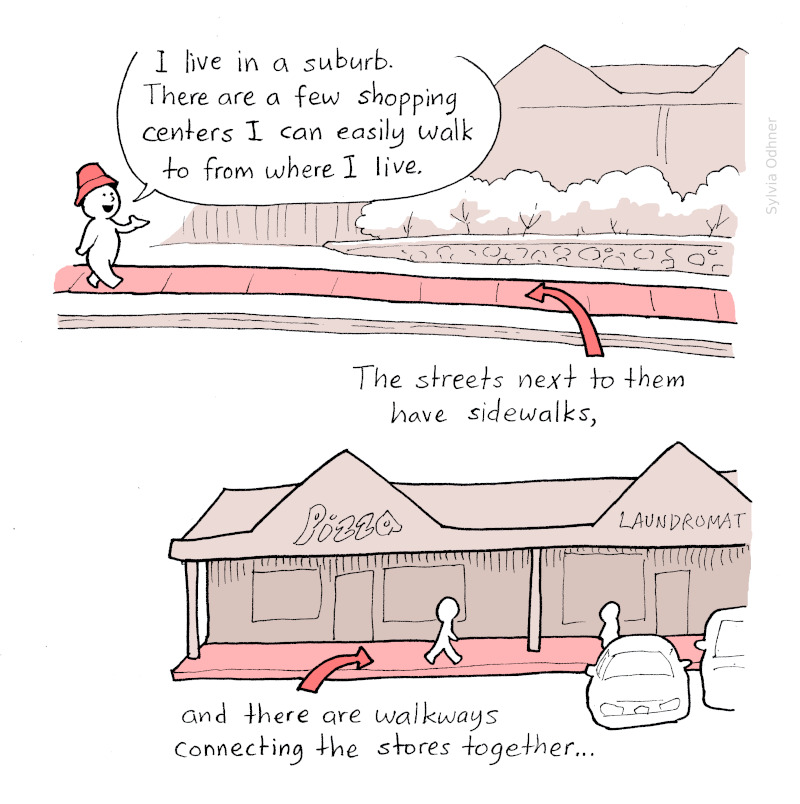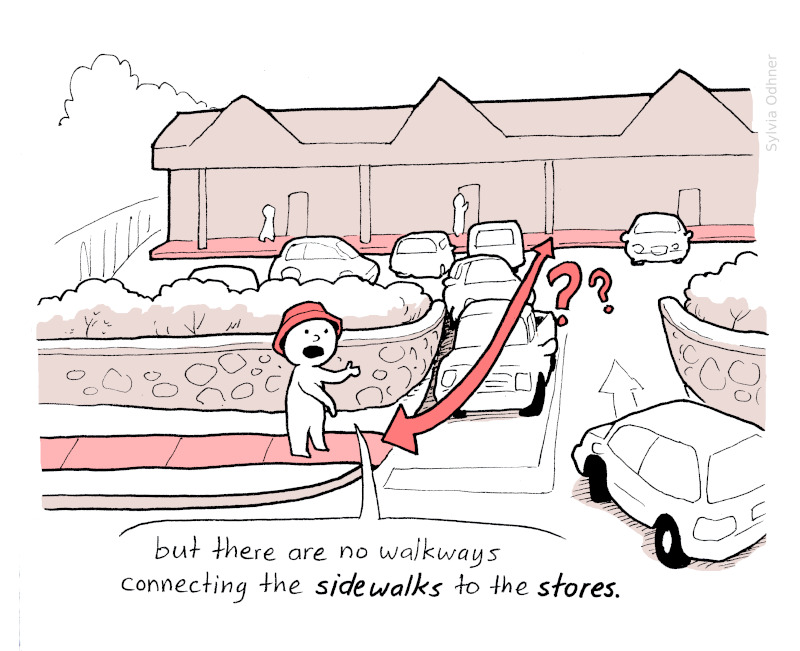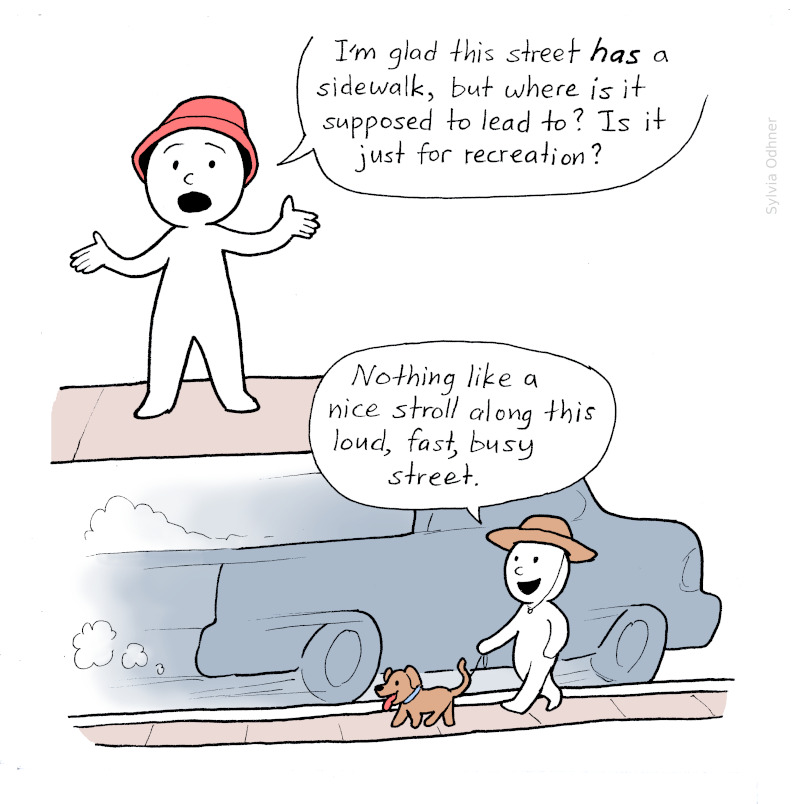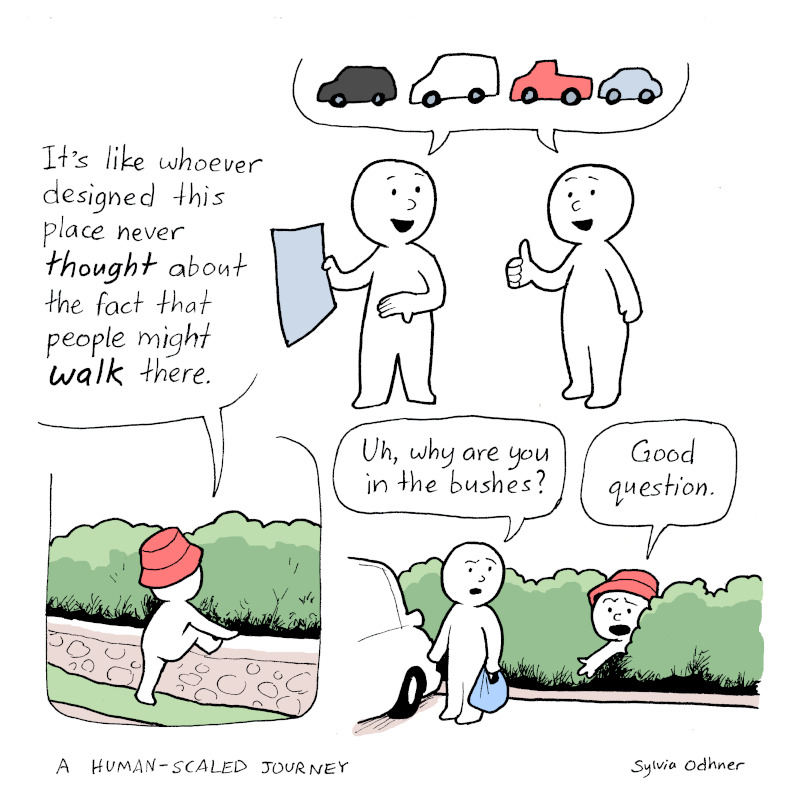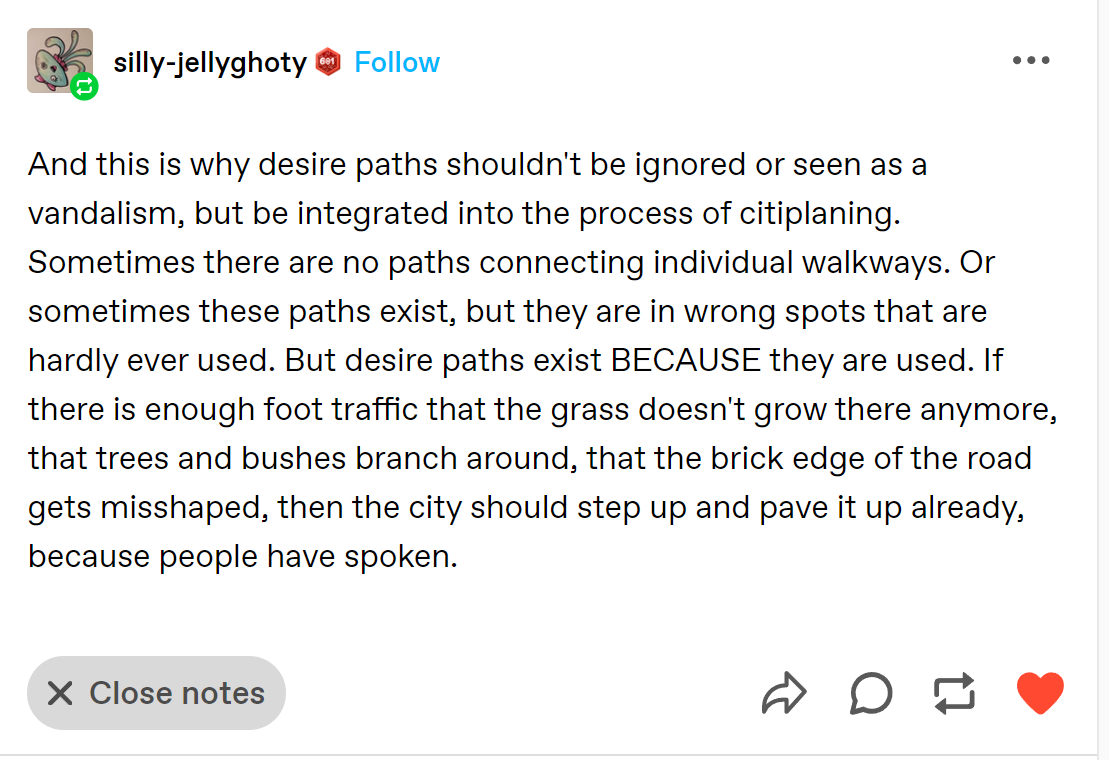Cars
Cars are a fact of American life. It's hard to imagine navigating a city without one. They are also not great for the environment.
The 15 Minute Cities
A 15-minute city is one where everything you need is within a 15-minute walk from where you live. They're much-maligned.
Proponents say that it supports sustainability and healthy living, encouraging walking or biking over car rides. (see also Induced Demand).
Modern neighborhoods are designed around the car, which leads to urban sprawl. It starts a cycle where you need a car, and since everyone has a car, we can build cities that assume everyone has a car, which means that you can't navigate it without a car, so you get a car so everyone has a car, so we build with that assumption on and on and on.
Most of the complaints about 15- or 20= minute cities come from libertarians who slippery-slope into believing that the zones will divide us, and we'll have to pay permits to be allowed to leave your zone. This is laughable.
Public Transit
When the government doesn't invest in public transit, that cost gets pushed onto the people.
Owning a vehicle is expensive, with an average annual cost of around $10,000*. Taxes for public transportation are far less than that.
* I disagree with this number a bit; it includes depreciation, at 1-2% per year, as well as over $1,000 of "misc" expenses that includes paying for parking spots.
Space
You can fit a lot of bikes into the space of one parked car.
If we remove street parking, we can have restaurant sitting (possibly generating rent), trees and greenspace, bike lines, shared spaces and parks, etc.
In the Sim City games, Will Wright mentioned that they had to dramatically reduce the amount of parking lots in the game, because it was SO much. Parking lots and garages take up a TON of space.
See Also

Housing as a human right
Induced Demand
What does a government owe its people
Why owning an average car costs $650,000+
- Taxes and fees don't offset the cost of maintaining roads or accidents.
- Owner costs come from fuel, insurance, maintenance
- In Copenhagen, cars are subsidized more per rider than public transit.
Culdesac, a neighborhood in Tempe, Arizona designed around walkability and carlessness.
